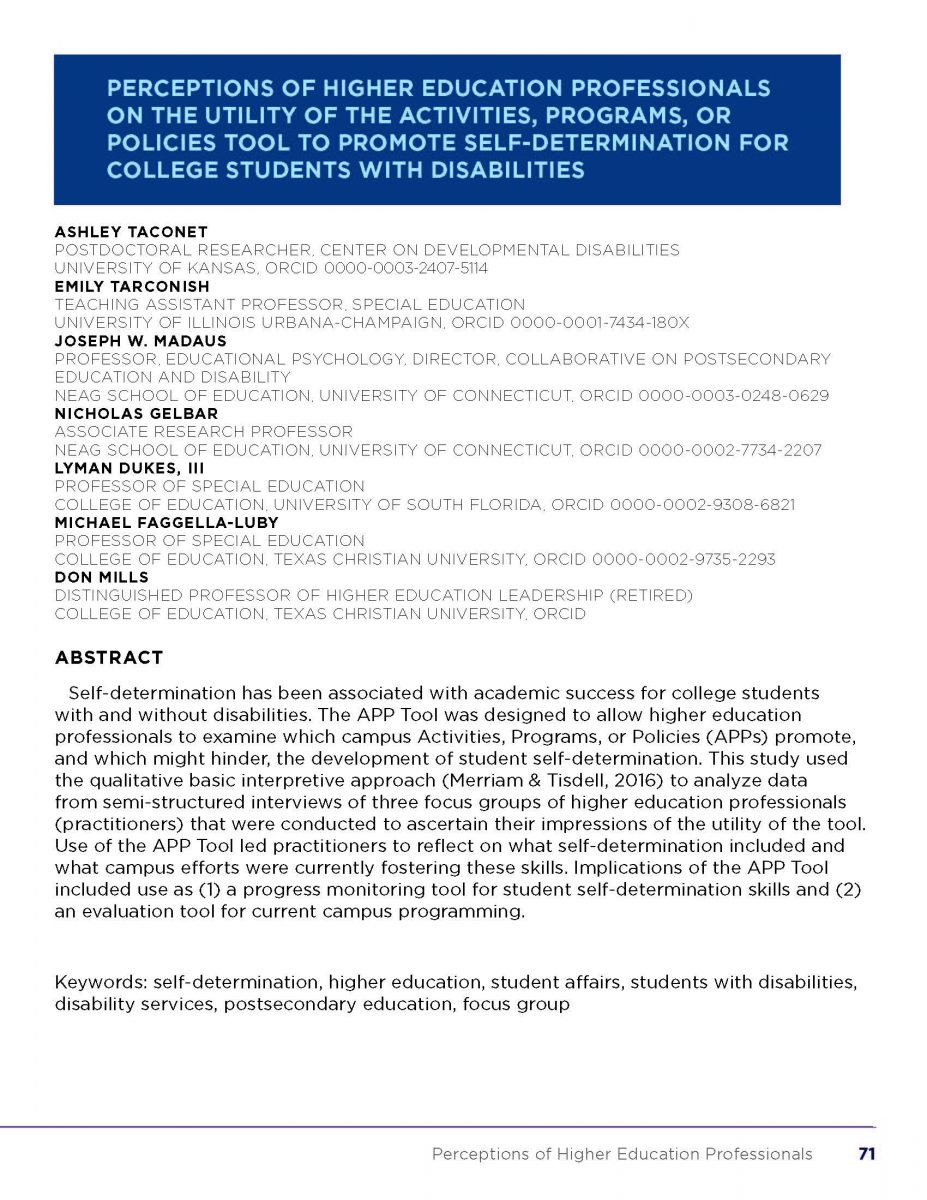Authors
Ashley Taconet, Postdoctoral Researcher, Center on Developmental Disabilities, University of Kansas
ORCID 0000-0003-2407-5114
Emily Tarconish, Teaching Assistant Professor, Special Education, University of Illinois Urbana-Champaign
ORCID 0000-0001-7434-180x
Joseph W. Madaus, Professor of Educational Psychology, Director of the Collaborative on Postsecondary Education and Disability, Neag School of Education, University of Connecticut
ORCID 0000-0003-0248-0629
Nicholas Gelbar, Associate Research Professor, Neag School of Education, University of Connecticut
ORCID 0000-0002-7734-2207
Lyman Dukes III, Professor of Special Education, College of Education, University of South Florida
ORCID 0000-0002-9308-6821
Michael Faggella-Luby, Professor of Special Education, College of Education, Texas Christian University
ORCID 0000-0002-9735-2293
Don Mills, Distinguished Professor of Higher Education Leadership (Retired), College of Education, Texas Christian University
ORCID
Abstract
Self-determination has been associated with academic success for college students with and without disabilities. The APP Tool was designed to allow higher education professionals to examine which campus Activities, Programs, or Policies (APPs) promote, and which might hinder, the development of student self-determination. This study used the qualitative basic interpretive approach (Merriam & Tisdell, 2016) to analyze data from semi-structured interviews of three focus groups of higher education professionals (practitioners) that were conducted to ascertain their impressions of the utility of the tool. Use of the APP Tool led practitioners to reflect on what self-determination included and what campus efforts were currently fostering these skills. Implications of the APP Tool included use as (1) a progress monitoring tool for student self-determination skills and (2) an evaluation tool for current campus programming.
Keywords: Self-determination, higher education, student affairs, students with disabilities, disability services, postsecondary education, focus group

